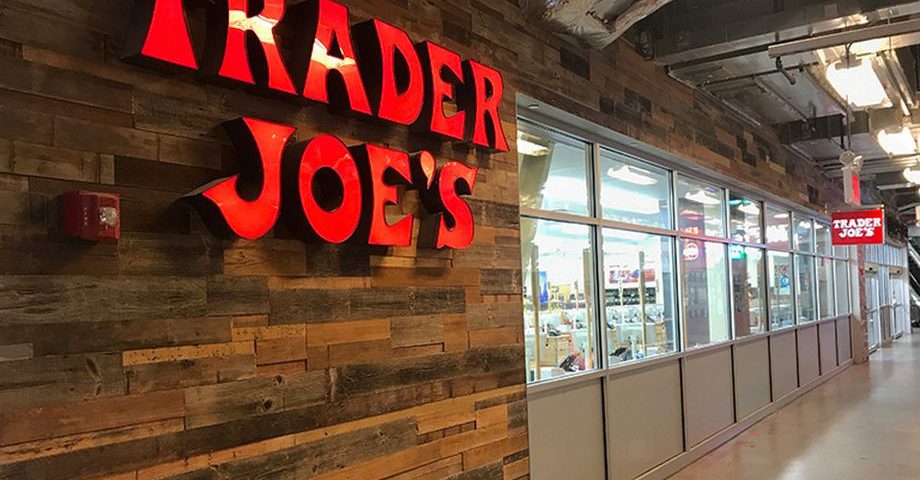Why Is The Average Tenure of Trader Joe’s Cashiers 19 Years?
The employee engagement issues tend to be on full display in the grocery industry.
Customer and employee engagement is directly impacted by CEOs who go for the lowest prices or premium buying experiences, but rarely both. But there is a big problem with the commodity-driven and mediocre store experiences. It is called Amazon.
Here is an example from direct experience. We live at the beach and within 300 yards of our home is a Vons/Pavillion. In the last 4 years, for every dollar we spend at Vons another 10 dollars are spent at other stores. We often drive 3 miles to Gelsons and pay a big premium, just so someone will smile at us or help us locate an item. On Yelp, customers from the Vons store make statements like, “Does this store come with a rope and a stool?” You would think a shareholder, the CEO, someone would view these reviews and do something. Personally, I would like to have a sustainable ongoing positive experience with the grocery store that is next to our home. A year ago, I even wrote a letter to Von’s. One night, a store manager left an urgent message on my voicemail. I returned that call and never heard from him again.
With Amazon’s purchase of Whole Foods, we are now considering having our staples (the basics) delivered to our day at a lower price, without the grief of trying to get through a line with a disgruntled cashier.
Is there anything surprising about this example? For many of us, poor customer service has become the norm. It is easy to dismiss these two examples because of Gelson’s focus on premium customers and hefty prices. But, how does a commodity versus premium culture compare in the face of Trader Joe’s?
Did you know the average tenure of a Trader Joe’s cashier is 19 years?
Trader Joe’s and Publix lead the country’s grocers with the highest customer service and employee satisfaction ratings in the category. Both organizations are consistently profitable. Both have founders and CEOs who lead the cultures. Both of them give equal value to employees and customers. However, within commodity-driven grocers, customers and employees are expendable.
We visit Trader Joe’s every other week. Depending on where we are traveling, we divide our time between two locations. At each one, there are cashiers who recognize us. This past year, I told one that I was writing a book on employee engagement and Trader’s seems to be one of the best places to work. I asked, “Is it true that the average tenure of cashiers is 19 years?”
She laughed, “Oh those are new people! I’ve been here for 24 years.” She flashed a big beautiful smile.
“What do you attribute it to?”
“The leadership of Trader Joe’s is amazing. They have created a true democracy. The other day, I was the second person who showed up in the morning. The other was our General Manager. He was in the bathrooms scrubbing the floors and taking out the trash. Nobody pulls rank here. We are a family.”
Publix and Trader Joe’s CEOs and other leaders routinely talk about “heart” within their culture. In fact, when they lead and manage the culture, we find rich examples of what that means in the field where it counts. In one Trader Joe’s store, a co-worker was going through a rough time in his personal life. The stress was beginning to show up at work. A manager asked the employee to join him behind the store. The guy assumed he was about to be reprimanded, perhaps even fired. The manager handed him two cartons of eggs and instructed him to throw eggs against the wall until he felt better. In a commodity culture, the manager would have been reprimanded for destroying eggs.
This down-to-earth, ego-free approach works. The company’s generosity towards their workers cascades directly out to the customers. During the onboarding process, Trader’s makes the mission of each employee to, “generously support the customers, to listen, and to carefully respond to the needs of those they serve.”
Trader Joe’s power of building a culture that is Democratic and kind was recently captured in an article from Spoon University by Katherine Baker. She earned a graduate degree in behavioral science and got a good job in the field only to discover it made her feel stressed out and emotional all of the time. She felt she had lost the game with the “adulting thing.” She took a part-time job at Trader Joe’s to catch up on student debt. Soon it was a full-time gig. One night, her sister asked if she liked her job at Traders. Surprisingly, she responded, “I think I do.” Katherine continued, I found myself while mopping floors, preparing hummus samples, and putting jars of cookie butter on the shelf. I remembered who I was, got in touch with what I wanted in life, and learned how effing important it is to follow your dreams – or at the very least, find the things in life that make you happy and unapologetically pursue them.”
Listening to Katherine, working in an environment that is democratic, connected, and positively didn’t turn her into a lifer. But, it certainly turned her into a fan.
Goodwill. This is the product of all great cultures.
The commodity cultures respond differently.
Goodwill?
We don’t have time for that.
Brought to you by David Harder, President – Inspired Work, Inc.
Schedule 15-Minutes to Discuss Your Workplace or Career with David (Here)
(C) Copyright, 2018, Inspired Work, Inc. – (All Rights Reserved)

